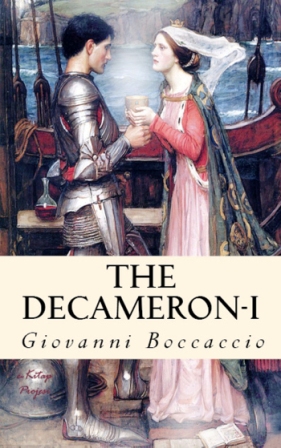
The Decameron (Volume I)
Son of a merchant, Boccaccio di Chellino di Buonaiuto, of Certaldo in Val d'Elsa, a little town about midway between Empoli and Siena, but within the Florentine "contado," Gio-vanni Boccaccio was born, most probably at Paris, in the year 1313. His mother, at any rate, was a Frenchwoman, whom his father seduced during a sojourn at Paris, and afterwards deserted. So much as this Boccaccio has himself told us, under a transparent veil of allegory, in his Ameto. Of his mother we would fain know more, for his wit has in it a quality, especially noticeable in the Tenth Novel of the Sixth Day of the Decameron, which marks him out as the forerunner of Rabelais, and prompts us to ask how much more his genius may have owed to his French ancestry. His father was of sufficient standing in Florence to be chosen Prior in 1321; but this brief term of office—but two months—was his last, as well as his first experience of public life. Of Boccaccio's early years we know nothing more than that his first preceptor was the Florentine grammarian, Giovanni da Strada, father of the poet Zanobi da Strada, and that, when he was about ten years old, he was bound apprentice to a merchant, with whom he spent the next six years at Paris, whence he returned to Florence with an inveterate repugnance to commerce.































